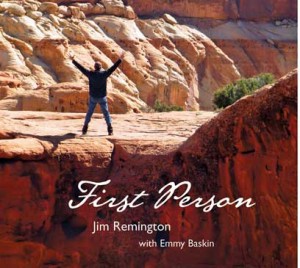by John Mattingly
In the month since part two of this series, the U.S. Congress has continued to talk big about American presence, power, and exceptionalism in the world, yet that same Congress has not had a real debate about U.S. strategy in the Middle East, nor has it formally approved the current operations of the U.S. military in the Middle East. Reversing Teddy Roosevelt’s maxim, “Walk softly and carry a big stick,” our Congress has been talking loudly while swinging a tiny stick.
I mention this out of the gate because it demonstrates the extent to which the current war has drifted from reality. We want America to be a superpower, but we don’t want to get bloody or dirty about it. We want to send off the drones and bombers while we keep shopping, spending big in ways that flow back to our pockets. We want to sing praises to returning vets but do nothing substantive to fix the VA medical system. In fact, far right Republicans want to do away with the VA entirely and privatize veterans’ medical care. We know from the private contractor fiascos since Clinton started the trend in the mid-1990s that privatization of the military budget leads to inefficiencies and greed that make military inefficiency look downright thrifty.
Might as well say it: on every level, from Main Street to Wall Street to the Beltway, the mess in the Middle East is drifting toward unreality. The war is so old and habitually incomprehensible that it is just a talking point, a topic of popular bombast, a source of jobs and pork for contractors; but it is something that, on a granular level of, say, putting on the boots or sending our own children into battle, is not quite real.
So war is becoming unreal for almost everyone except the enlisted military people actually engaged in it. Private contractors receive pay that is orders of magnitude greater than enlisted troops, and in many cases the private work involves less risk. Then, domestic contracts for weapons production and military services are spread out over more than 400 Congressional districts in the U.S., enriching both small businesses and international corporations that create jobs within the district with the larger corporations paying dividends to assist the 401(k) retirement funds for our aging population. All of us have “blood on our hands” but this blood is not quite real. At all levels except the grunts, we have a firewall between the realities of war and our real lives.
[InContentAdTwo]
War has technological and cultural benefits. Even though war is, as Robert McNamara said in The Fog of War, “an absence of imagination,” war provokes invention and spreads culture. However, it’s worth noting that, in almost every other human endeavor, knowledge and skill advance, each new advancement building on prior achievement. Every fifth grader today knows more than Newton or Einstein. Hundreds of basketball players are now exceeding the skill level of Michael Jordan. Medicine is extending our lives and replacing our joints. The list goes on and on, but it doesn’t apply to the acts of war. Humans have developed more sophisticated weapons to engage in war, but this is not advancement or progress in human skill, this is only amplifying an “absence of imagination,” leading to the ultimate void in imagination. A nuclear weapon not only makes war, but makes it impossible to win; thus nuclear weapons aren’t, strictly speaking, weapons. They are as Kissinger said, “A device in search of a dialectic.”
It is most revealing that nations now seek the ownership of nuclear weapons as a status symbol, a way of saying to friends and enemies, “My dick is as big as yours, so don’t screw with me.” By developing nuclear weapons, humans have gone so far backward that they have gone full circle, back to the equivalent of cave men wagging big sticks and beating on their chest so hard to demonstrate strength that they knock the wind out of themselves. So although war spreads inventions and culture, the actual waging of human wars has not advanced in imagination. It is still a blunt tool used in admission of a failure to resolve.
The thesis of part three of American Schnitzel is that we take Henry James’ directive that humans find a “moral equivalent of war” to another level and wage war with more imagination. A lot more imagination. Acknowledging up front that this may be as naive as John Lennon sitting in bed with Yoko and singing Imagine, the fact is that humans love games. The word game here is used in the expanded sense that we know mathematically as Game Theory, in sports as The Big Game or the Game of the Century, and in the cultural vernacular, the Game of Life.
Games are not uniquely human, but the extent and competitive complexity of human games stand apart from ants and ducks, even bears and elephants. From chess to soccer, from American football to hockey, from volleyball to golf, from the Prisoner’s Dilemma to video games – not to mention curling and marathons and dressage – human dedication to, and fascination with, games is a big part of what makes us human. The recent exponential growth and popularity of video games leading to international competitions and elevation of video game players to superstar status among Millennials is a noteworthy evolution.
It is not rash to suggest that the generation coming up after the turn of the millennium – worldwide – is considerably less inclined to shed blood over disagreements than were the generations who came up through Greatest Generation of WWII, or the duped vets of the Vietnam “mistake,” or the sadly tricked vets of the colossal strategic blunders in Iraq and Afghanistan. Future generations have a good chance of learning from history, unlike those who continue to repeat it.
The rise of technology has, in many ways, opened new books on the way we see history, the way we connect with each other, and the ways in which we formulate resolutions to conflict. Technology has also enhanced games, providing sophistication opportunities that did not exist a few decades ago. And it’s worth mentioning that all cultures have historical examples of fighting by proxy. David and Goliath, for example. Both sides realized that a battle would be messy and costly, so each side put forward its best warrior and agreed to abide by the outcome of a battle, aka a “game” between the those two warriors. Given that we now have more sophisticated game tools than swords and slings, even more sophisticated than pointless nukes, the possibilities for conflict resolution through games becomes more interesting and more likely. Being realistic, the chances of these sorts of games emerging on the international stage as substitutes for war will require the passing of most of the “older” generations who are stuck in the old mold.
When I was in my twenties, I was elected to a Ditch Board north of Fort Collins. The only reason I won was because one of the old boys who had most of the proxies decided it was time for a younger person to get into the policy-making mix. When I came up with ideas, the old boys would nod their heads patiently and tell me, “Well, that’s a good idea, but it will take a funeral for that to happen.”
I understood from this that it is a cultural fact that certain people, and/or groups of people, get dug into a position in the games of culture. Until these people are physically gone, change is difficult, if not impossible. This is why dictators simply kill off the opposition as a shortcut to the evolution of their dialectic. From the Ditch Board experience I learned that an idea that required only one funeral had a chance, but an idea that required three or more funerals was not likely to happen in my lifetime. I called this the Funeral Index.
If you look at the Funeral Index required to bring about a change in the way humans wage war, a way that will be imaginative and less costly, it will take a lot of funerals. Over time, the Cheneys and Bushes, the Rumsfelds and Putins, the Ashads and Khomenis will die. A new generation, born into a world where they learn how to operate a cell phone and a computer before they can repeat the alphabet, will take control; they will likely understand that warriors are fools who do the bidding of fat old men who are basically cowards, that there is a swifter path to creating jobs and wealth than running the money through weapons, and they will see that war is, as Sartre said, “a greater loss for victor than conquered.”
John Mattingly cultivates prose, among other things, and was most recently seen near Poncha Springs.


